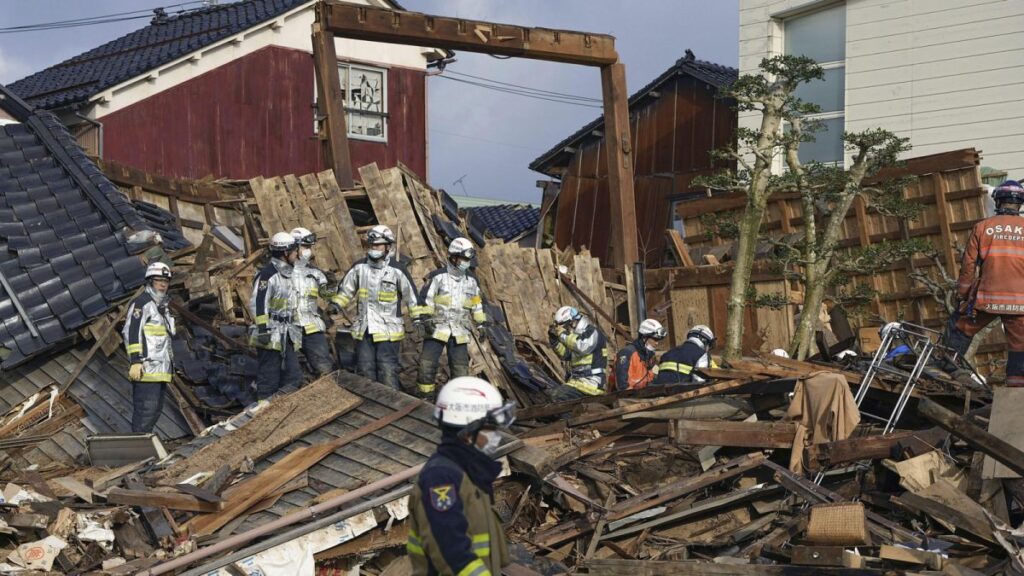In Japan, after the terrible earthquake which struck the country on January 1, the toll rose to at least 94 dead and 222 missing. The chances of finding survivors are diminishing.
Four days after the powerful earthquake, which shook western Japan on January 1, searches to try to find survivors continue even if the chances of finding people alive are diminishing.
This Friday, the death toll rose to at least 94 deaths, and the number of missing was reassessed to 222 missing people. Thursday, rescuers managed to extract a woman from the rubble.
Authorities in Ishikawa said 55 of the deceased were in the town of Wajima and 23 in Suzu, while the rest were reported in five neighboring towns. More than 460 people were injured, at least 24 seriously.
The University of Tokyo’s Earthquake Research Institute found that western Japan’s sandy coastline has shifted 250 meters toward the sea in some places.
The earthquakes triggered a large fire in the town of Wajima, as well as tsunamis and landslides in the region.
With some roads cut off by the destruction, concerns grew over communities where supplies of water, food, blankets and medicines had not yet reached.
The United States at the bedside of the archipelago
The United States announced $100,000 in aid Friday, including blankets, water and medical supplies, and promised more aid to come for the Noto region, without revealing the amount.
Thousands of Japanese troops joined efforts to reach the hardest-hit areas of the Noto Peninsula, the center of the quake, connected by a narrow strip of land to the rest of the main island of Honshu.
Experts have warned of illness and even death at the centers which now house around 34,000 people who have lost their homes, many of them elderly.
Masashi Tomari, a 67-year-old oyster farmer who lives in Anamizu town in Ishikawa, said it was difficult to sleep on the ground with just one blanket. There was no heat until two stoves finally arrived Thursday, three days after the 7.6 earthquake hit the island. “It’s a terribly cold place.” did he declare.
Since the violent earthquake, the region has still been without electricity. On Friday, running water was not yet fully restored in Anamizu. Some residents had to fetch water from a nearby river to flush the toilet.
Dozens of aftershocks have rocked Ishikawa and the neighboring region over the past week.
Japan, with its intersecting fault lines, is a nation extremely prone to earthquakes. Weather forecasts predict rain and snow for the weekend, and experts warn of more aftershocks, which could hit the country again.




